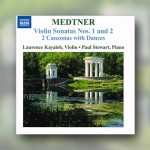From Jazz to Improvisation
When I’m not with Beethoven, Prokofiev, Brahms, Bach, Debussy or Mozart, I enjoy listening to Jazz music. It’s one of my fun and relaxing hobbies 🙂 !
Good Jazz harmonies are very interesting. Characterized by innovative musical ideas and freedom of expression, it is reflecting the musician’s mood of the moment. One needs to be a natural musician to be a good jazz player, improvising being the key element defining this style of music. I guess that’s a quality that every good musician should develop. But this is clearly not something one can learn, like any God-given gift or natural language !
“Jazz is a mental attitude rather than a style. It uses a certain process of the mind expressed spontaneously through some musical instrument. I’m concerned with retaining that process”. (Bill Evans)
Even a classical music performer is in a way “recomposing” the piece that he or she is performing. For me, the challenge is to respect the musical indications and to get the closest possible to the composer’s intention and message. I try to read as much as I can about the composer’s history, or even about the instrumental and technical aspects related to the work I’m performing (like bowings or fingerings, for example). I strongly believe in the (often) long tradition related to the history surrounding a piece of music, which is to me immutable. At the same time, great composers’ Hearts and Souls remain forever a mystery and they are no longer with us to express their inspirations…
That’s where the performer’s creative role starts from my point of view ; to carve the work in one’s personal manner while respecting the musical fundamental architecture. I name it the improvisation of sound, ambiances, colours, moods, dynamics etc. And with enough sound creation and imagination, a musician can even give the impression of Tempi changes without modifying at all the pulse and the metronomical speed. Paradoxically, it is this unique touch which defines every classical musician in a context of an extremely well structured and organized music score.
I once read : The best improvised music sounds composed. The best composed music sounds improvised. How true this is !
I guess Music is a balance between structure and the ability to let ourselves receptive to the flow of inspiration and to improvisation !
Apart from some Gershwin pieces, I have never tried playing Jazz on the violin. Maybe one day, who knows…but only for my own pleasure :).
Laurence



